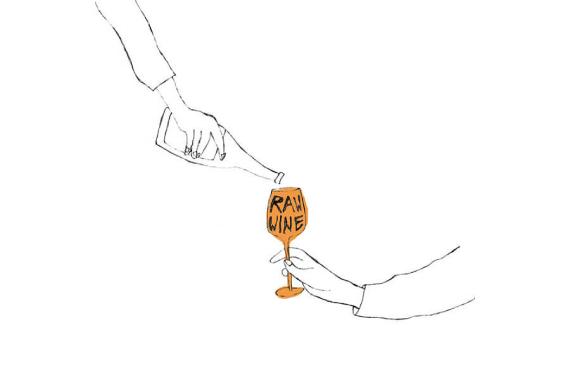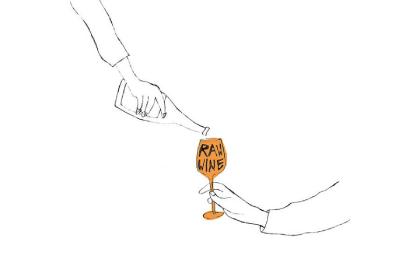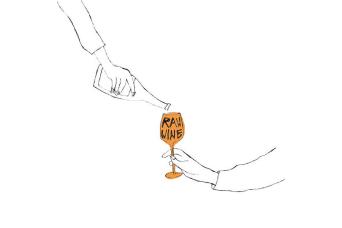


About
WHO?
After almost 6 ½ years in Berlin, host Billy Wagner sensed it was time to strike out on his own.
An intense year of preparation and planning culminated on February 11, 2015, with his new eatery opening its doors on Friedrichstrasse. Only 9 months later, Nobelhart & Schmutzig and its chef Micha Schäfer received their first Michelin star as well as 16 out of 20 possible points in the Gault Millau guide. It also claimed the coveted "Gastronomy Concept of the Year" for 2015 from international trade magazine Rolling Pin. September 2016 saw Nobelhart & Schmutzig eatery chosen as "Restaurant of the Year 2017" by Der Feinschmecker, Germany’s most important food magazine.
WHAT?
We are introducing the people of Berlin to the full range of locally sourced products in their city and the region around it. We see it as our responsibility to support the producers in Berlin and its environs. "Vocally Local," one might say.
Eating is an act bound up in emotion. Food is "(ful)filling" — at an emotional and physical level. That rush is what we're all about. Our most intense experiences are almost always tied to food that is simultaneously sumptuous and simple. In today's world of globalization and excess, where few things can't be had at a moment's notice, we are turning to old-fashioned techniques for preservation and preparation. We style our fare around a carefully selected mix of modern and traditional methods. We've sought out farmers and fishermen, foresters and hunters for help in building a menu that emphasizes not just the sustainable pleasures of the table, but which truly opened our eyes to the beauty of the Berlin region.
WHY?
For the first time in human history, the consumer is far separated from the product and its producer. In a world of obscene excesses, we have lost our link to our environment and the unique aspects of the things within it. The fall of the Berlin Wall opened up Berlin to a new quality of life. Brandenburg, Mecklenburg-Vorpommern and the Baltic Sea were for many years as distant as Provence, Brittany and Burgundy. Today, the city of Berlin, with its vibrant restaurant scene, has become the most important partner to the Berlin region's farmers and producers. 26 years after the fall of the Wall, the areas in and around Berlin are in full bloom.
Alongside our colleagues at Einsunternull and Horvath (** in the Michelin Guide), we see ourselves as growing a new culinary style here in Berlin. New in that traditional concepts have been deconstructed; in their place we've dedicated ourselves to a new and authentic German style that bursts the cycle of plagiarism. The cornerstone of this movement began in Frankfurt's Villa Merton (** star, Michelin Guide) and Essigbrätlein in Nuremberg (** star, Michelin Guide). We're standing on the shoulders of those giants, and are doing our best to advance their philosophy even further. Berlin is without a doubt at the epicenter of this movement.
The German culinary scene is in dire need of its own distinct profile. Not only for itself, but also for its reputation around the world. Germany, best known outside its borders for its prowess at building cars, has a legion of notable restaurants and chefs. What's needed now is a break from the chains laid on us by the expectations of the luxury industry and French culinary tradition. The inspiration and curiosity to follow new paths are what drive us forward.
WHAT PRECISELY?
It's easier to say what this isn't: a restaurant with a classic à la carte concept. Speiselokal Nobelhart & Schmutzig is a holistic eating experience. We set our table with one 10-course menu, carefully selected for internal harmony, and that's it. The prime directive is seasonal products, sourced locally. If Mother Nature doesn't offer it here in our region, then we won't either. It's really that simple. To let the tastes inherent to the products better speak for themselves, Chef Micha Schäfer has tailored his recipes to highlight no more than two to four dominant flavors per dish. We call this approach "Vocally Local." It's not about finding base ingredients that are merely available from regional producers. It's about taking the underlying spirit of the philosophy to its logical extreme and choosing only what's traditionally available in the region. This means working around olive oil, pepper, nutmeg and citrus fruits, not to mention vanilla, cinnamon and of course chocolate as well.
For us, the primary ingredient is the star of any dish. We conceptualize our preparation and presentation entirely around this core principle. Which is why we approach each humble onion with the same meticulous care and craft as a fine cut of lamb. Whatever the product, the quality expectations remain uniform. And that's how we ultimately judge ourselves and our creations — not by the cost of the ingredients, but the care and quality of what we make from them.
At this eatery the chef and his kitchen team aren't hidden away. They shepherd guests through each step of the evening, presenting and explaining the dishes and the logic behind their selection. In this way, the guest can embrace the dining experience, by and with people he can trust.
When asked what he thinks we should be eating, Micha Schäfer has a simple answer: "Everything. You just need to know how to prepare it." That means looking beyond just the fillet cut or the fruit of the plant. Our table is also graced by the leaves, shoots or even simply its seeds. Our work is focused on traditional methods of preservation and preparation: techniques like fermentation, brining, pickling, acidification, salting and marinating offer more than just a hedonistic charm. They are also admirable and enduring forms of natural preservation. By request we'll gladly make the necessary accommodations for sensitivities and allergies, or for vegetarian and vegan lifestyles.
We adhere to the same general principles for our wine selection as we do in our kitchen: we want to know the people behind the products. It's the only way we can be truly certain of what we're consuming.When it comes to wines, we believe in giving regional authenticity the highest priority.
That does not mean, however, that we only list wines from Germany. We order from all around Europe. But when we want a Sicilian wine, we opt for an indigenous Sicilian grape rather than a Cabernet/Merlot blend made to international specs. Because those generic all-purpose wines fail to represent either tradition or origin. Through that lack of authenticity, they ultimately fritter away their own value as well.
We are fighting the good fight against these generic standards by crafting a list filled with hand-selected examples of distinctive wines from indigenous varieties. We trust the estates both in who they are and what they say. They provide not only the wine, but also the face of the men and women who helped make each wine what it is. And that lets us drink with conscience and conviction. Not only with knowledge of who and what and where, but how: how they think, what they believe, and what they know. The philosophy behind the wine, if you will. Or beer. Or whatever else your thirst may desire.
In addition to authentic wines, artisanal beers, traditional fruit wines, naturally produced juices, the finest herbal and infusion teas and freshly brewed filter coffee, we are proud to offer eaux de vie and digestifs made in Germany and her neighboring countries.
HOW?
Speiselokal Nobelhart & Schmutzig integrates the kitchen seamlessly into the dining area. 28 guests are seated at a long counter that wraps around the food prep area in the middle. There are no secrets here at our kitchen table. The guests are positioned at the center of the action and can watch the meal emerge from its individual ingredients. A large oval table for up to 14 guests is also available for groups.
WHERE?
The restaurant is located at Friedrichstrasse 218, 10969 Berlin. No. 218 can be found just south of Checkpoint Charlie, in the Kreuzberg section of Friedrichstrasse near the south exit to the Kochstrasse U-bahn station.
WHAT'S WITH THE NAME?
Speiselokal Nobelhart & Schmutzig is an unusual name for a restaurant. Back in September 2011 a good friend showed me an article in the FAZ newspaper discussing the sport of polo and the clichés inherent to that sport. The headline ran: "Nobel, hart und schmutzig - eine Randsportart" (English: Noble, hard and dirty - a fringe sport). The turn of phrase stuck with me and we decided that it would be our name, with slight modification.
Contact Details
Friedrichstraße 218
Berlin,
10969
Germany


